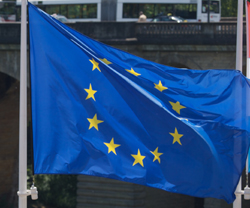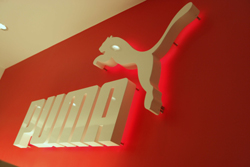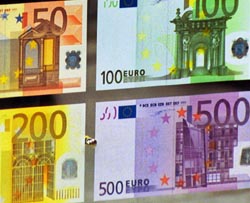Campus
EU discusses Corporate Governance
 Back in April, the European Commission presented its Green Paper The European Corporate Governance Framework. The 28-page booklet outlines a framework for a European Corporate Governance Code and is to serve as a basis of discussion for the creation of uniform European rules of conduct. This Green Paper focuses on three topics: the role of non-executive directors or supervisory-board members, shareholder participation and the “comply or explain” principle. The paper also, however, raises the questions whether for corporate-governance measures firm size should play a role, and whether the rules ought not to apply to non-listed companies too. Whether the paper will lead to enforceable and binding initiatives still remains open. Comments on the proposals may be posted at the address This email address is being protected from spambots. You need JavaScript enabled to view it. until 22 July 2011.
Back in April, the European Commission presented its Green Paper The European Corporate Governance Framework. The 28-page booklet outlines a framework for a European Corporate Governance Code and is to serve as a basis of discussion for the creation of uniform European rules of conduct. This Green Paper focuses on three topics: the role of non-executive directors or supervisory-board members, shareholder participation and the “comply or explain” principle. The paper also, however, raises the questions whether for corporate-governance measures firm size should play a role, and whether the rules ought not to apply to non-listed companies too. Whether the paper will lead to enforceable and binding initiatives still remains open. Comments on the proposals may be posted at the address This email address is being protected from spambots. You need JavaScript enabled to view it. until 22 July 2011.
Puma puts figures on environmental impact
 Sports-goods manufacturer Puma published the world’s first ecological profit-and-loss account in mid-May. The Herzogenaurach firm puts the damage to the environment caused by the company in the past year through the production and sale of sports goods at a total of €94.4 million. By the disclosure, the Group intends to make transparent the environmental impact incurred throughout the value chain from water consumption and greenhouse-gas emissions. All production stages from raw-material production, such as the cultivation of cotton, via raw-material processing to manufacturing and transporting the products, administration and distribution are included in the calculation. While the damage from greenhouse gases emitted is estimated at €47 million, Puma gives its water consumption as €47.4 million euros. Costs of around €66 per tonne of CO2 and €0.81 per cubic meter of water are taken as a basis. Puma’s core business accounts for 15 percent of the greenhouse-gas emissions and 0.001 percent of the water use. The bulk of the damage is generated in the supply chain. The ecological profit-and-loss account has no direct impact on Puma’s net income, but is intended to raise awareness of the ecological footprint companies cause through their activities. Puma has developed the list with the two consultants PwC and Trucost. In a second step the group plans to create a social profit-and-loss account, targeting fair wages as well as safety and working conditions. In the third step Puma CEO Jochen Zeitz will present a complex assessment of the social and economic benefits of Puma’s commercial activities, including job creation as well as tax payments and charitable initiatives. The environmental issue has concerned the group since last year. In early 2010, Puma announced the target to make its packaging 100 percent sustainable by 2015, saving 25 percent of the CO2, energy and water. In addition, sustainable materials and recycled polyester are to be used in production.
Sports-goods manufacturer Puma published the world’s first ecological profit-and-loss account in mid-May. The Herzogenaurach firm puts the damage to the environment caused by the company in the past year through the production and sale of sports goods at a total of €94.4 million. By the disclosure, the Group intends to make transparent the environmental impact incurred throughout the value chain from water consumption and greenhouse-gas emissions. All production stages from raw-material production, such as the cultivation of cotton, via raw-material processing to manufacturing and transporting the products, administration and distribution are included in the calculation. While the damage from greenhouse gases emitted is estimated at €47 million, Puma gives its water consumption as €47.4 million euros. Costs of around €66 per tonne of CO2 and €0.81 per cubic meter of water are taken as a basis. Puma’s core business accounts for 15 percent of the greenhouse-gas emissions and 0.001 percent of the water use. The bulk of the damage is generated in the supply chain. The ecological profit-and-loss account has no direct impact on Puma’s net income, but is intended to raise awareness of the ecological footprint companies cause through their activities. Puma has developed the list with the two consultants PwC and Trucost. In a second step the group plans to create a social profit-and-loss account, targeting fair wages as well as safety and working conditions. In the third step Puma CEO Jochen Zeitz will present a complex assessment of the social and economic benefits of Puma’s commercial activities, including job creation as well as tax payments and charitable initiatives. The environmental issue has concerned the group since last year. In early 2010, Puma announced the target to make its packaging 100 percent sustainable by 2015, saving 25 percent of the CO2, energy and water. In addition, sustainable materials and recycled polyester are to be used in production.
Dividends sharply up
 The 30 largest German technology companies are distributing higher dividends than ever before, at 540 million euros for the last financial year. This is shown by an analysis from shareholder association Deutsche Schutzvereinigung für Wertpapierbesitz (DSW). However, the TecDAX remains far below the Dax in distributions. In Germany’s first stock-exchange league, a total of 26.5 billion euros will be paid out to shareholders. This total, while still below pre-crisis levels, is up 30 percent from last year. Over all companies listed in the Prime Standard, total dividend for 2010 grew by 31.7 percent to 31.1 billion euros.
The 30 largest German technology companies are distributing higher dividends than ever before, at 540 million euros for the last financial year. This is shown by an analysis from shareholder association Deutsche Schutzvereinigung für Wertpapierbesitz (DSW). However, the TecDAX remains far below the Dax in distributions. In Germany’s first stock-exchange league, a total of 26.5 billion euros will be paid out to shareholders. This total, while still below pre-crisis levels, is up 30 percent from last year. Over all companies listed in the Prime Standard, total dividend for 2010 grew by 31.7 percent to 31.1 billion euros.
DSW complains of DAX forecast reports
A study by shareholder association Deutsche Schutzvereinigung für Wertpapierbesitz (DSW) and consultancy Kirchhoff Consult has come to the conclusion that the quality of the DAX forecast reports, at an average of 7.4 pages long, is very varied. The DSW calls for more transparency in the forecasts. The figures available internally were often kept from the public, said DSW Chief Executive Ulrich Hocker. FMC and Bayer landed next to Henkel in the highest category. Transparency had significantly improved at Merck too, after the company had been criticized for its 2008 report. Volkswagen at ten pages has one of the longest forecast reports, but still ends up in the category of "low transparency". Similarly "unusable" as at VW is the transparency of the forecasts at BASF, Beiersdorf, DaimlerChrysler, HeidelbergCement and Lufthansa, said Hocker.
|
High Transparency |
Medium Transparency |
Low Transparency |
|
|
Bayer |
adidas |
Allianz |
BASF |
|
Deutsche Post |
BMW |
Commerzbank |
Beiersdorf |
|
E.ON |
Deutsche Bank |
Deutsche Börse |
Daimler |
|
Fresenius Medical Care |
Deutsche Telekom |
Fresenius SE |
Deutsche Lufthansa |
|
Henkel |
Infineon |
K+S |
HeidelbergCement |
|
METRO |
Linde |
MAN |
Volkswagen |
|
RWE |
Merck |
Munich Re |
|
|
|
SAP |
Siemens |
|
|
|
ThyssenKrupp |
|
|
(Source: Kirchhoff Consult)
Poor service
The Cologne-based agency NetFederation has taken a closer look at distribution practice for the printed annual reports of 110 companies in the DAX, TecDAX and MDAX. The agency gave points for the ordering process, service, technology and the usability of the entire process. In 78 of 110 companies, the report can be ordered online. Delivery times stretched from one working day up to two weeks. Only 31 reports were adequately packaged. From eight companies, the agency received no print version mailed. Only nine companies indicated the online version of the report when ordering, while 45 companies provide the report in another language. In only 18 cases was the report available as a subscription. In the overall ranking NetFederation named Bayer as number one.















